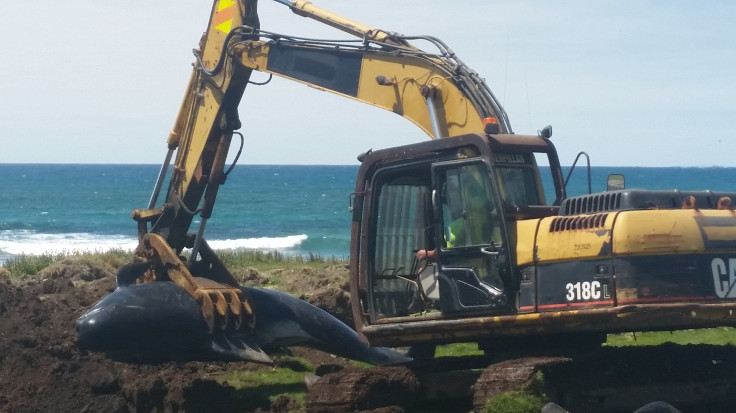50 Whales Dead After Mass Stranding In New Zealand's Chatham Islands

Shortly after a mass beaching of whales at the southern end of Hanson Bay near Owenga Township on the Chatham Islands, New Zealand, more than half of them were found dead on Friday (Thursday in the U.S.), by the time the Department of Conservation (DoC) arrived at the scene.
Around 80 to 90 pilot whales were found stranded on the beach Thursday. While 30 to 40 of them successfully refloated themselves and were able to return to the sea, over 50 of them were unable to do so and all barring one, died on the beach.

The DoC became aware of the situation Thursday evening. Since it was too late in the day to act, they rushed to the spot at daybreak on Friday (around Thursday noon in the U.S.) but were unable to save the one whale which had managed to survive, due to the animal’s poor condition, a press release by the department said.
"There was no likelihood of being able to successfully save the remaining whale," said DoC's Chatham Islands operations manager, Dave Carlton. "Sadly, the decision was made to euthanize. It was the most humane thing to do. This is always an awful decision to have to make."
Carlton added that the indigenous tribes of Chatham Island - Moriori, and Ngāti Mutunga iwi – were informed as the department worked with the locals to bury the dead whales.
Before the whales are given a burial, skin and blubber samples will be collected from them and sent to Massey University where scientists will closely study them in order to try and understand the species better.
This is the second mass stranding of whales this week in the country, with the first one being at the beach of Mason Bay in Steward Island. That beaching took place over the weekend, when two pods of pilot whales totaling around 145 were found scattered along the shoreline, around 1.2 miles apart from each other. While half of them had died by the time marine authorities got to them, the rest of them had to be put down.
The Maori tribe, Ngāi Tahu, were called to bless the deceased creatures before they could be buried.
In 1918, an estimated 1,000 pilot whales were found stranded on Chatham Islands – the biggest recorded pilot whale stranding in history. The DoC responds to 85 incidents of whale strandings on New Zealand shores per year and yet, they are no closer to figuring out why these beaching events actually take place. However, they do have a few theories.
"Exactly why whales and dolphins strand is not fully known but factors can include sickness, navigational error, geographical features, a rapidly falling tide, being chased by a predator, or extreme weather. More than one factor may contribute to a stranding," the DoC said.
© Copyright IBTimes 2024. All rights reserved.






















